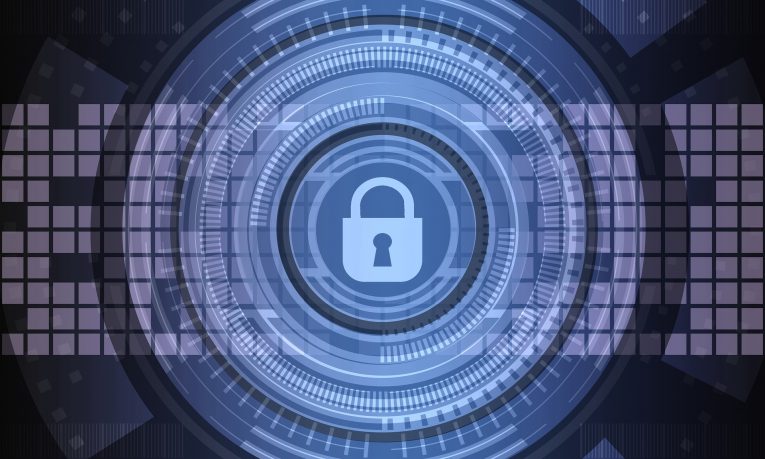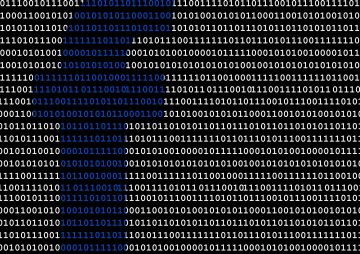What Are the Top 5 Concerns for Data Privacy?

How much does your privacy cost? A few cookies, it would appear. Back in 2014, a performance artist called Risa Puno, conducted an experiment during a Brooklyn arts festival. She stopped some New Yorkers and offered them cookies in exchange for some private information. We should point out that we're talking about real cookies, not the ones websites save on your computer. Does anyone want to hazard a guess how many people agreed to trade personal details for some sweets?
More than 50% of the people allowed to have their photograph taken, just under half of the participants gave away the last four digits of their Social Security numbers, and about 31% let Puno take their fingerprints. In addition to this, people were happy to answer questions like "What is your mother's maiden name?", "What is your phone number", "Where do you live?", etc., and Puno even looked at some driver's licenses to ensure that the information is correct.
It is true that this is not exactly the most scientific experiment, but it does show that many people are not completely mindful of the consequences of giving away personal data. It's easy to point fingers and mock them for their willingness to trade sensitive information without thinking too much about it. It's probably a better idea, however, to show them why they should be concerned about their privacy. Here's a small list of the things that could happen to you if your personal details are exposed.
- Identity Theft. It's not that easy to define identity theft because it comes in many different shapes and sizes. Hijacking a Facebook account, for example, can be classified as identity theft. The same goes for stealing a Social Security or a driver's license number and issuing a new credit card in the victim's name. No matter what type of identity theft you get hit by, it's always going to end in tears.
- Financial Damage. You want some of your data to be available for the world to see. Your friends can't find you on Facebook, for example, if your name isn't visible. Some details, like your credit card, however, must remain private. Unfortunately, they don't always do, and when they're exposed in the virtual world, they lead to serious monetary damages in the real one.
- Stalking. Simple details like the location of your office and your home address could be exactly what people with a lot of time on their hands and a lot of nasty thoughts in their heads want. It's another example of how your online security can affect your real-life well-being.
- Spying. It should be noted that this isn't something that is present in everybody's threat model. Nevertheless, the "I've nothing to hide" excuse is not something you should live by. You can never know when you're going to become an interesting subject for your government, and you mustn't forget that once information is put on the Internet, it usually stays on the Internet.
- Having your Data Sold. Many cybercriminals want to get their hands on your data, but they don't always have the means of stealing it. They do have some cash, though. Although some people are willing to sell it for a few cookies, personal information is valuable, and there are scammers, marketers, and other shady personalities willing to pay good money for it. Of course, they want a return on their investments as well, and that return, in most cases, comes out of your pocket.
These are just some of the risks associated with having your private data exposed. It's imperative to take the necessary precautions and do what you can to protect it.
What can I do to keep my private data private?
Again, this is not an exhaustive list, but we'll give you some basic tips that will help you better protect your sensitive information.
- The less information is stored on the Internet, the less of it can be misused.While registering an online account, you usually need to enter your details in a few fields. Some of these fields have asterisks next to them which means that creating the account without filling them is not possible. Others, however, don't, and when you reach them, you should ask yourself: "Does the administrator of this obscure online forum really need to know my physical address and phone number?"
- The hackers can't compromise an account that doesn't exist.You end up on an online forum thread, and you see that someone's opinion on a specific topic is not in line with yours. You're tempted to reply to them and tell them that they're wrong, but this involves registering a new account. Time for another question: "Is posting a reply really worth giving away my personal information? Or should I leave this person I've never met before to their blissful ignorance?"
- Shop at reputable websites.You find a thing you want on Amazon, but the price isn't right. A few minutes on Google lead you to a website you've never heard of which sells the same item for a few dollars less. Sounds like a no-brainer, right?Don't be in such a rush. Before committing to a purchase, make sure the website you've ended up on is legitimate. First, look for the green padlock in the address bar, and if you don't see it, do not enter your personal information. Next, try to find some reviews about the vendor. The Internet has given unscrupulous scammers numerous ways of pilfering money from unsuspecting users, and the fact that others have fallen victims doesn't mean that you should too.
- Social media login buttons might not be such a good idea.It's true that you're often too bored to go through the long, tedious registration process just to create an account for a new website. This is why the social media login buttons appeared several years ago. The idea is that instead of giving example.com your data manually, it just takes it from your Facebook or Twitter profile. Seconds later, your account at example.com is created, and you're ready to start using it.Without a doubt, it's extremely convenient, but as we mentioned last month, the level of control over what you share isn't the same, and incidents like the recent Cambridge Analytica scandal show that the not much can stop the data-hungry companies from accessing your information, regardless of whether you're happy with this or not. Generally speaking, if you're creating an account that you're likely to use for a limited period of time, you're better off using a throwaway email address. With the social media login buttons, you can't really do that.
- Secure your accounts.If hackers can get into your accounts, your privacy is done for. That's why it's important to have them secured. The thing that keeps unauthorized people out of your account is your password. People seem to make the same mistakes when it comes to passwords, though, and we can't really blame them for it.The average user has dozens of online accounts, which, in a perfect world, would mean dozens of exceptionally strong, and, crucially, unique passwords to protect them. Unfortunately, in case you haven't noticed already, this is not a perfect world, and users set weak and reused passwords. The truth is, sticking to the security professionals' advice without the help of additional tools is not really possible. That's why the specialists advocate the use of additional tools. Cyclonis Password Manager is one such tool. To learn more about it, click here.
Because passwords present such a big problem, however, more and more service providers are offering a second layer of security that is supposed to better protect us against the bad guys.
The idea of Two-Factor Authentication is that if someone steals your login data, this alone won't be enough to compromise your account. Usually, two-factor authentication systems are triggered when a login attempt is made from an unknown device. In such cases, in addition to the login credential, the person using the said device will need to enter another piece of information, which usually comes in the form of a code sent to you via email, text message, or generated by an app on your phone.
- It's not all up to you.We've already covered this. In some cases, by visiting a website, you inadvertently give away some details about yourself. And even if you do it willingly, you can't control how the information is stored. The millions of people whose data was exposed during the Equifax breach, for example, had no idea that one of the US' biggest credit institution doesn't have the habit of updating its software very often.More and more people argue that companies should be much more careful and transparent with the data they collect, and Europe's new GDPR (General Data Protection Regulation) shows that regulators are taking note. It's fair to say, however, that people looking for legal and illegal ways of getting hands on your information are unlikely to disappear any time soon.








